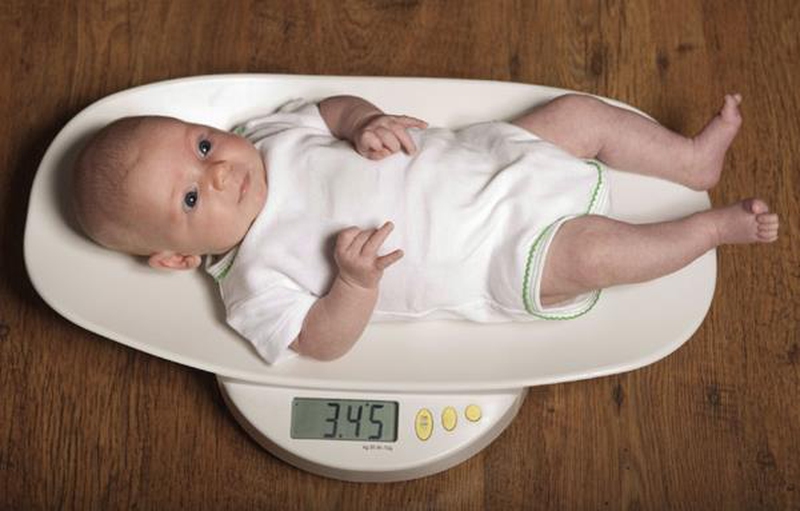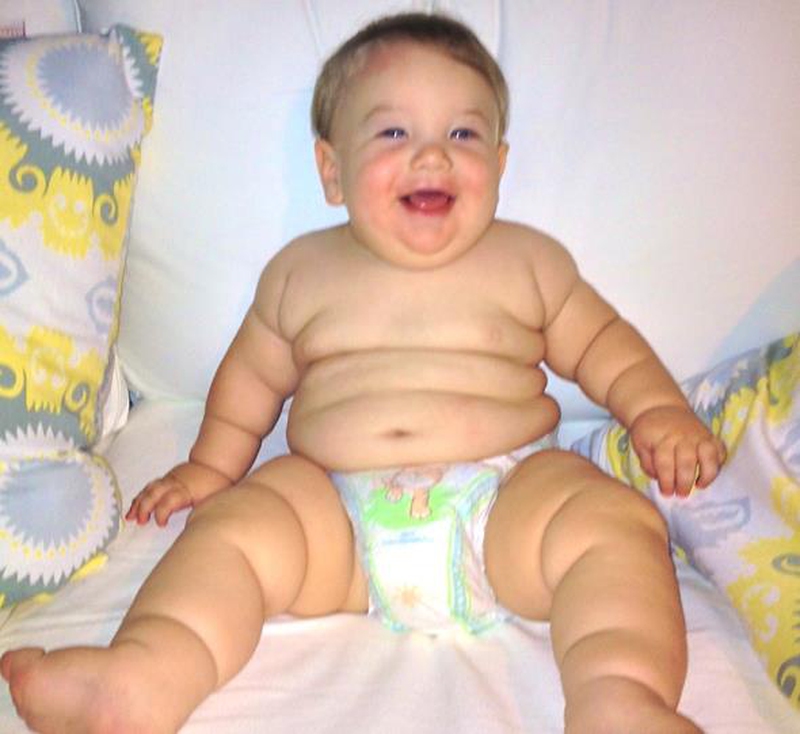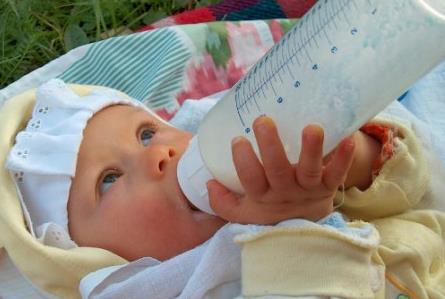Most newborns lose weight in the first 3-4 days of life. This is normal, and the loss can be 5-7% of total weight. Babies usually compensate this loss over the next 2-3 weeks. The more baby have lost, the longer it will take to regain that weight.
The minimum recommended weight for healthy breastfed babies during the first three months, is from 113g to 227g. Thus, to about the fifth or sixth month of life will double the weight it had at birth. Growth in the average height of 2.5 cm for the month and head circumference is an average increase of 1,27cm per month during the first six months of life. We are giving you some facts that you should know about baby weight gain.
Babies are progressing the most during the first three months, then that progress slows considerably. Breastfed babies aged 4-6 months receive from 85-145g a week on average, breastfed babies aged 6-12 months are added to the weight of 45-85g per week. With one year of age, the average breastfed baby weighs about 2.5 times more than at birth, the height is increased by approximately 50%, and head circumference of about 33%.
6 Crucial Things to Know About Baby Weight Gain
How to Boost Your Baby Weight Gain
While breastfeeding, make sure the correct position of the baby at the breast, as well as whether the baby correctly catches your nipple! Increase the number of daily feedings, and do not skip the night feeding. Breastfeed often, on every two hours, a number of daily feedings should be at least 8-12, allow a longer interval between feedings, of about 3 hours, only at night. This should be useful for baby weight gain while breastfeeding.
Rapid Weight Gain
When the baby is gaining weight faster than usual, the mother may be worried and wonder whether this is the road to obesity in adulthood. A rapid baby weight gain doesn’t mean that the later obesity will be the case. When we speak of exclusively breastfed baby younger than six months, mom can be without worries. Breast milk doesn’t have "empty calories", as is the case with fully processed foods. It was not proven that children who rapidly progressing only on breast milk have a problem with overweight in older pediatric age, as adolescents or adults.
A Little Too Much Grams
This issue generally concerns moms in the second half of the year. In the first two to three months, children can gain more than the prescribed 500 g, for example, 1.5 and even 2 kg. But, then the pace of the baby weight gain should slow down a little. If you find that your child is heavy and you feel that when you carry it, consult with the mothers among relatives.
Often it turns out that such a specific weight gain is inheritable and you and/or your parents were real giants as a six-month baby. But if there are no such genes in your family and you do not know any external reason why your baby gained so much weight, do not insist on too often and immense portions of food. It is compulsory to consult a pediatrician that should refer you to the child’s endocrinologist. Constant large baby weight gain without slowing after 6 months, suggests hormonal disorders. This disorder will be successfully treated if you start treatment as soon as possible.
The Children’s Progress
It is known that with a completed first birthday, the average child who was fed with substitute milk have lower height and greater weight in comparison with the child fed with the mother's milk. According to the tables of norms, the child in the first half of the year should every month receive 600 to 800 g, and 500 to 700 g in the second half of the year. The dynamics of development of children fed with mother’s milk is different.
From 6 to 9 months, breastfed babies will get 300 to 500 g per month and after 9 months when many babies already begin with the first steps, only 100 to 300 g per month. These data greatly differ from data on children fed by substitute milk. For breastfed infants, other standards are applied. So, baby weight gain depends on whether you fed it with milk from your breasts or substitute milk.
How to Know Whether Your Baby is Getting Enough Food
If you fed your baby with a bottle, it will be easier for you to know how much the baby ate. But, if you are breastfeeding, it is a little harder to know how much he is eating. One of the indicators that your baby ate well is if your breasts are soft after feeding. It is important to watch your baby while eating, so you can be sure if it swallows the milk properly. Probably the most important indicator of whether or not your baby is getting enough to eat is whether or not it seems to be satisfied after eating. A satisfied baby will often go to sleep in a couple of minutes after eating. In this way, you can monitor your baby weight gain and you should control it with ease.
Nutrition Advices
Babies have very small stomach and the need for the proportionally large number of calories - during the first year, 50% of the necessary calories must be obtained from sources of fat. Breast milk and formula milk have a high percentage of fat. Parents often feed the baby with fruits and vegetable puree, but without enhancing the calorific value by adding cereal or milk. Some give the parts of their food, that baby can eat, for example, mashed potatoes with meat gravy, rather than give the food which is more adjustable for baby weight gain and baby’s health itself.








View All Comments /Add Comment